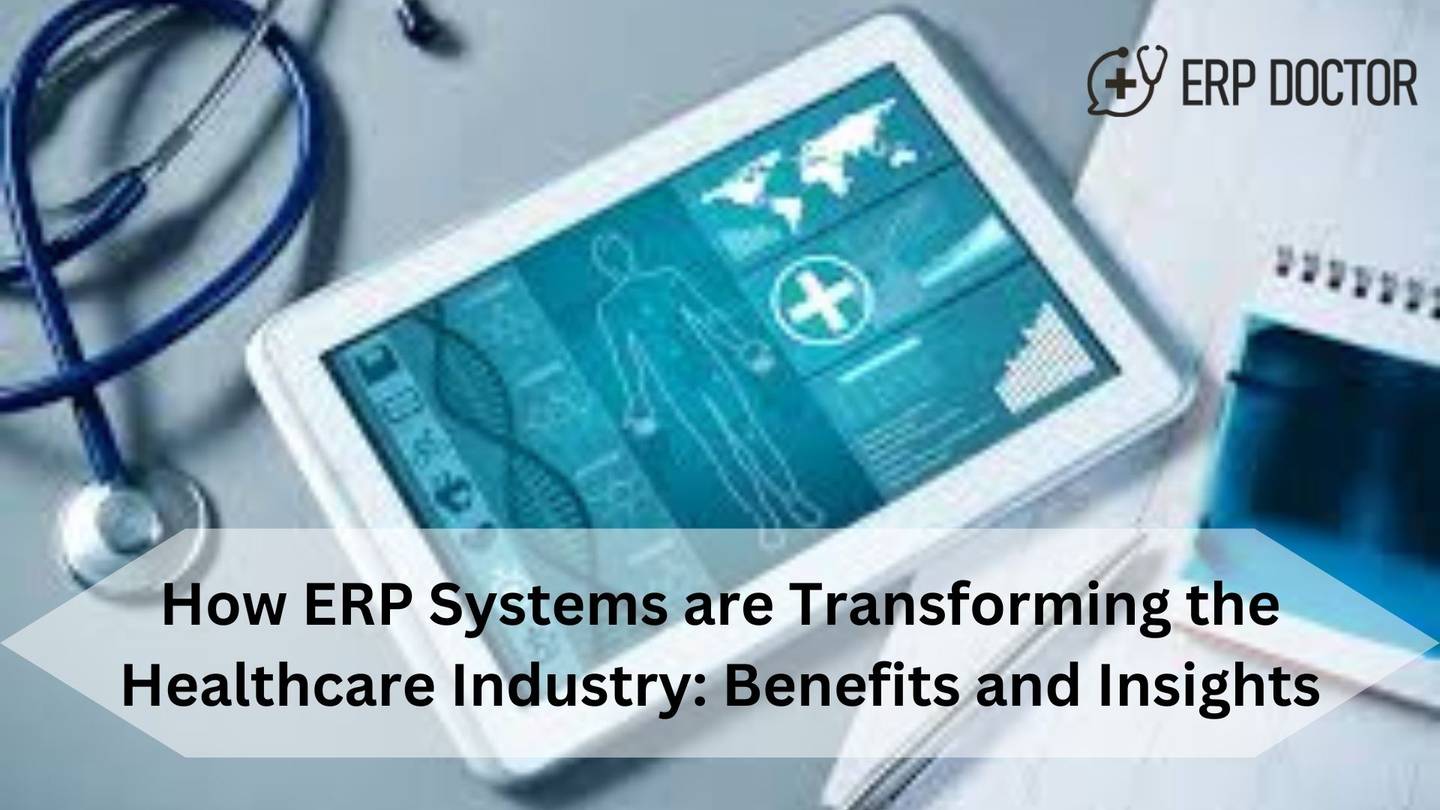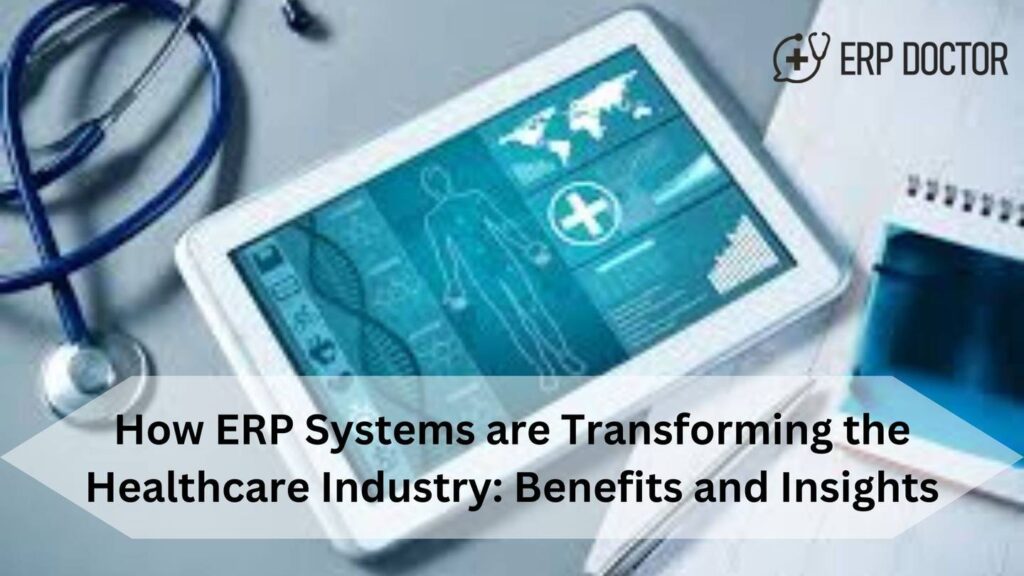
How ERP Systems are Transforming the Healthcare Industry: Benefits and Insights

ERP Solutions for Healthcare Industry: Transforming Patient Care and Operational Efficiency
In the fast-paced world of healthcare, efficiency and accuracy are crucial. As medical institutions continue to grow and evolve, the need for sophisticated systems to manage various aspects of operations becomes increasingly important. This is where an ERP (Enterprise Resource Planning) system comes into play. In this blog post, we will explore how ERP software can revolutionize the healthcare industry, enhance patient care, and streamline administrative tasks.
What is ERP Software?
ERP software is a comprehensive solution designed to integrate and streamline various business processes within an organization. In the context of the healthcare industry, an ERP system offers a unified platform that manages everything from patient records and billing to supply chain management and human resources.
Key Features of ERP Systems in Healthcare
- Integrated Patient Management: An ERP system consolidates patient information, improving data accuracy and accessibility. This integration ensures that medical professionals have up-to-date information at their fingertips, which is critical for effective patient care.
- Efficient Billing and Claims Processing: ERP solutions streamline billing processes and facilitate accurate claims processing. By automating these functions, healthcare providers can reduce errors, speed up reimbursements, and improve financial management.
- Optimized Supply Chain Management: Managing medical supplies and pharmaceuticals can be complex. An ERP system provides real-time tracking and inventory management, helping healthcare institutions avoid stockouts and reduce waste.
- Enhanced Human Resource Management: From managing employee schedules to tracking certifications and compliance, an ERP solution simplifies HR tasks. This helps in maintaining a well-organized workforce and ensures that all staff members are up-to-date with necessary credentials.
- Regulatory Compliance: Healthcare is a highly regulated industry. ERP systems help organizations comply with various regulations by maintaining accurate records and facilitating reporting requirements.
Benefits of Implementing ERP Software in Healthcare
- Improved Operational Efficiency: By automating routine tasks and integrating different functions, ERP systems reduce manual effort and operational bottlenecks, leading to more efficient workflows.
- Better Patient Outcomes: With streamlined processes and accurate data, healthcare providers can offer better patient care. Quick access to medical histories and treatment plans enables more informed decision-making.
- Cost Savings: While the initial investment in ERP software might be significant, the long-term savings are substantial. Reduced administrative costs, minimized errors, and optimized supply chain management all contribute to financial benefits.
- Data-Driven Insights: ERP systems provide valuable analytics and reporting capabilities. These insights help healthcare organizations make informed decisions, identify trends, and improve strategic planning.
- Scalability: As healthcare institutions grow, ERP systems can scale to accommodate increased demand. This flexibility ensures that the system continues to meet the needs of the organization.
Choosing the Right ERP Solution for Healthcare
Selecting the right ERP system is crucial for maximizing the benefits. Here are a few factors to consider:
- Customization: Ensure the ERP software can be tailored to meet the specific needs of your healthcare organization.
- Integration: The ERP system should integrate seamlessly with existing systems and technology.
- User-Friendliness: A user-friendly interface is essential for ensuring that staff can easily adapt to the new system.
- Support and Training: Opt for a provider that offers comprehensive support and training to help your team transition smoothly.
In the healthcare industry, where precision and efficiency are paramount, an ERP system is more than just a technological upgrade—it’s a strategic asset. By implementing ERP software, healthcare organizations can enhance patient care, streamline operations, and achieve significant cost savings. As you consider ERP solutions for your organization, focus on finding a system that aligns with your specific needs and supports your goals for excellence in patient care.
For more information on ERP systems and how they can benefit your healthcare organization, visit us at: https://erpdoctor.in/ Our experts are here to help you navigate the complexities of ERP software and find the perfect solution for your needs.







